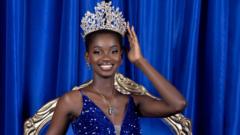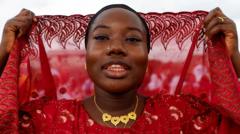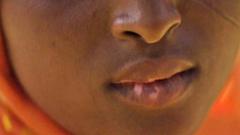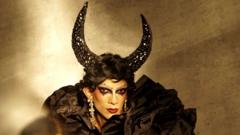In a bold move, the Miss Ivory Coast beauty pageant has banned wigs and extensions to encourage contestants to showcase their natural hair. This reflects a significant shift towards embracing authentic beauty, challenging long-standing practices while also sparking divisive opinions.
Embracing Authenticity: Ivory Coast Beauty Pageants Ditch Wigs for Natural Hair

Embracing Authenticity: Ivory Coast Beauty Pageants Ditch Wigs for Natural Hair
A landmark decision in beauty pageants reshapes standards in Ivory Coast, promoting natural hairstyles and igniting a debate on cultural identity and self-expression.
In a revolutionary step for beauty standards, the Miss Ivory Coast pageant has made headlines by banning wigs and hair extensions from its competitions, a decision that aims to celebrate natural hairstyles among contestants. For decades, the beauty pageant scene in Ivory Coast has been dominated by long wigs and weaves, with participants often investing heavily in their appearances to conform to Western beauty ideals.
Historically, only two winners in over sixty years—most recently Marlène-Kany Kouassi in 2022—have opted for their natural hair while claiming the title of Miss Ivory Coast. This change in regulations marks a significant departure from traditions, as Victor Yapobi, president of the organizing committee, stated that the aim is to reveal the "raw beauty" of contestants and promote self-acceptance.
The new guidelines now permit contestants to embrace their own hair, whether styled in braids or straightened, as long as it is natural. Beyond hair restrictions, the pageant has also adjusted its entry criteria, allowing shorter women to compete by lowering the minimum height to 1.67m (5.4ft) and increasing the age limit to 28, alongside reducing the participation fee to alleviate financial strain on candidates.
While many young women, like contestant Emmanuella Dali, see these changes as empowering and a source of pride, the ban has led to mixed feelings within the local beauty industry. Some, like hairdresser Ange Sea, express concern that this decision could negatively impact their livelihoods, as the wig market is worth over $300 million in Ivory Coast.
The ongoing discussions surrounding this shift in beauty norms highlight a cultural evolution, as more individuals advocate for the acceptance of natural hair. While beauty pageants often reflect societal standards, this new rule challenges contestants and the public to reconsider what beauty truly means and fosters a sense of confidence in women celebrating their natural hair.
As the preliminary rounds unfold, reactions have been supportive, with Yapobi noting overwhelming praise for the initiative. At the upcoming Miss Ivory Coast finale in June 2025, it remains to be seen if the natural hair policy will persist, potentially paving the way for a broader cultural shift in how beauty is perceived in Ivory Coast and beyond.
















